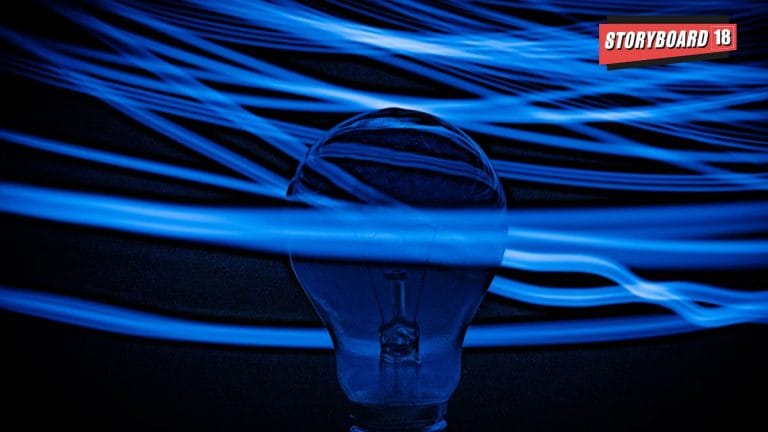Digital
Leading with purpose creates wins for consumers, community and country: Hina Nagarajan of Diageo India

“Consistency is the last refuge of the unimaginative.”
— Oscar Wilde
The ‘corporate-bureaucrat’-as a class-can be generically described as boring, risk averse and intellectually disinterested. To them, consistency is the highest virtue. Not high achievement, novel ideas or bold disruption but consistency.
In the eyes of the ‘bore-lords’, consistency is synonymous with reliability and discipline. One can see this is possible when only a few do the thinking whereas the rest are tasked with execution. In many cases, mediocrity, laziness and timidity get camouflaged as ‘process minded consistency’.
For the truly imaginative, a strict adherence to consistency becomes a cage—a comfortable prison that suffocates creativity and curtails breakthrough thinking.
History has demonstrated that true genius is often a product of glorious inconsistency, thriving in the fracture lines of unpredictability and swirling in the chaos of contradiction.
A reverence for the myth of consistency is developed in us from a young age and even the pedagogical models employed in formal education emphasise it.
We get convinced that discipline and repetition are the pathways to success.
It is simply untrue in a world where knowledge is democratised, scale is immaterial to winning ideas and means of advancement are open to all.
Still, in education, in work, and in art, consistency is championed as the gold standard of progress. This rigidity in evaluation criteria blocks creative exploration. It forces innovation to fit within the confines of what is known, expected, and safe.
Great creative minds, however, rarely follow these paths. Consider the example of Albert Einstein. His academic career was anything but consistent. He loathed rote learning, often skipped classes, and defied traditional thinking.
His rebellion against strict academic structure allowed him to explore ideas that conventional education had yet to embrace. It was in these irregular bursts of thought that Einstein birthed the theory of relativity—an idea that shattered long-held beliefs about space and time.
Genius is often inconsistent because it is exploratory by nature. It probes boundaries, challenges assumptions, and dives headfirst into the unknown. It is the antithesis of routine. Steve Jobs exemplified this brilliantly. His approach to product development was famously erratic.
He would demand sudden changes in design, scrap projects without warning, and revisit ideas thought long abandoned. To outsiders, it seemed chaotic, yet it was precisely this unpredictability that allowed Apple to leapfrog its competitors and redefine entire industries.
Bob Dylan, a pioneer of musical reinvention, refused to be boxed into a single genre. His transition from folk to rock, gospel, and even blues was not a sign of inconsistency but of relentless exploration. Each shift was a testament to his refusal to stagnate creatively. His genius was not in perfecting a single style but in reinventing his sound, pushing boundaries, and challenging his audience to follow him through uncharted territory.
Great discoveries often emerge from moments of departure from the norm. The Wright Brothers, pioneers of aviation, did not succeed through methodical replication of existing designs. They experimented wildly, often abandoning previous models to pursue radical new ideas. Their genius lay in their willingness to be inconsistent in their approach, embracing failure as part of the creative process.
Even in literature, inconsistency has proven to be fertile ground for brilliance. Salvador Dalí, the surrealist artist, was profoundly unpredictable. His art ranged from hyper-realistic to nightmarishly abstract, defying stylistic consistency. It was his willingness to contradict artistic norms that solidified his place as a visionary.
In most -if not all - cases the entrepreneurial genius required to create huge value comes from mavericks who don’t fit the mould but their legacy is managed by ‘bore lords’ who are as consistent as a synthetic commodity.
Those who seek comfort in repetition, mistake it for mastery.
To be consistently predictable is to reject the spontaneity of exploration.
True genius is messy; it is riddled with contradictions and prone to leaps of intuition that defy linear understanding. It is in these wild fluctuations that innovation is born.
While discipline and routine have their place, they are not the exclusive roads to greatness. In fact, history shows that some of the most transformative thinkers were not merely inconsistent—they were proudly so. Their inconsistency was not a flaw but a testament to their unyielding curiosity.
It takes courage to abandon the safety of consistency. It means embracing uncertainty, risking failure, and defying norms. But for those willing to venture into that uncharted territory, the rewards are profound.
Genius is not built on perfect repetition; it is sculpted in moments of wild departure from the ordinary.
My effort is not just a critique—it is a call to action. A call to defy the predictable, to embrace the contradictions, and to understand that inconsistency, far from being a flaw, is the crucible in which true imagination is forged.
Do the different !
Shubhranshu Singh is CMO, Tata Motors CVBU. He writes Simply Speaking, a column on Storyboard18. Views expressed are personal.
At the Storyboard18 DNPA Conclave 2025, Union Minister Ashwini Vaishnaw spotlighted the critical role of traditional media in an evolving digital landscape. He emphasized that such gatherings can aid the govt in formulating more effective policies for a balanced and sustainable media ecosystem.
Read MoreFrom the chiefs of Nestle, Diageo, Colgate, PepsiCo, Zetwerk and CRED to AI visionaries, marketing mavens, top creators, ad legends and leading global agencies' CEOs, the brightest minds converged at the Storyboard18 Global Pioneers Summit for an action-packed day of meaningful dialogues on creativity, commerce and culture.